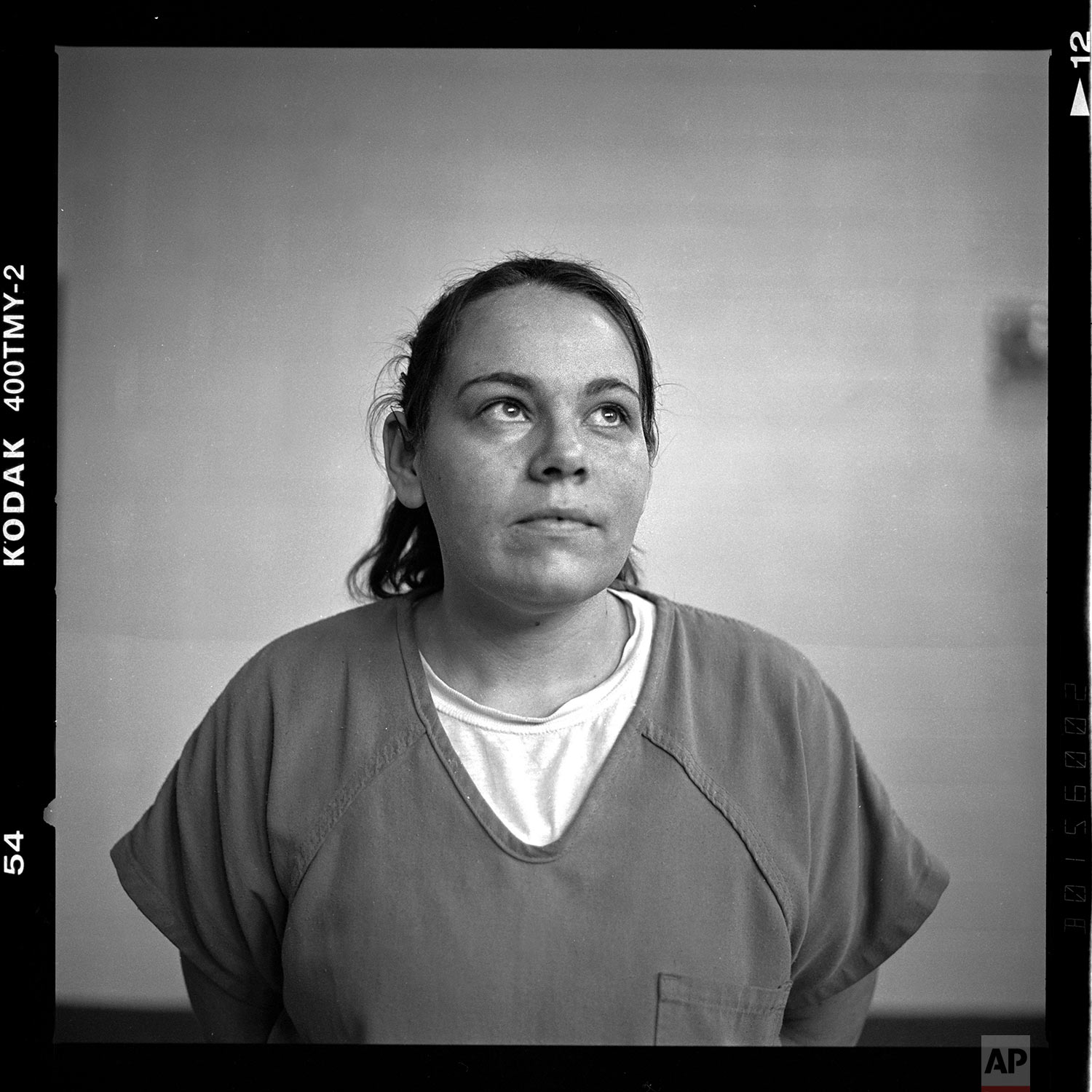The female inmates of Campbell County Jail

There was no makeup to put on, no outfit to prepare. There wasn’t even any notice a visitor was coming. It was 2:30 on a weekday afternoon, and some women were roused from sleep by the sound of their cell door unlocking. They were asked if they'd pose for a portrait.
The setting was the Campbell County Jail - where the last time these female inmates looked into a camera, their mug shots were being taken. Some women were in for theft; others for drug possession or parole violations. For all, this stint behind bars was just the latest downward turn in a cycle of addiction and incarceration.
More than a decade ago, there were rarely more than 10 women in this rural Tennessee jail. Now the population is routinely around 60. It’s an example of how the opioid epidemic is fueling the fastest-growing correctional population in America: Women.
Michelle Tickle, age 38. "I started using drugs when I was 27. When that's all you do for so long and that's all you surround yourself with, it's all you know. I don't know why I keep doing the things I do. I've detoxed hundreds of times. It's going to kill me if I keep getting high. I want to get sober. I do. It's just I need to change everything. I would need a lot of structure in my life. I would love to be sober and working and being a good person in a community. I would love for that." (AP Photo/David Goldman)
Michelle Leopard estimates she's been in and out of this jail 30 or 40 times for aggravated burglary, theft of property, trespassing, probation violations and more. Every time she’s released, she hopes to stay clean, but the reality of life on the outside quickly crushes those plans.
In 2015, Campbell County had the third-highest amount of opioids prescribed per person in the nation. There’s no treatment available in the jail for the women _ no counseling or chance to work, no other courses other than a high school equivalency diploma program. Lt. Mallory Campbell, assistant jail administrator, would like to offer more, but there isn’t money for programs or staff.
For most women here, jail is a temporary pause from the only way of life they’ve ever really known. Blanche Ball learned to cook meth at home at the age of 15, from her stepfather. Sarai Keelean once spent Christmas in a cell with her mother, who also is an addict.
On the inside, they bond, while relationships with those on the outside crumble. Children wind up in state care or are turned over to relatives. Grandparents become parents, yet again. And with each day that passes, the women dream of mending broken ties and changing their ways.
Blanche Ball, age 30. Ball says she grew up around relatives using drugs and learned to cook meth as a teen. "I have no willpower whatsoever. The only thing that has been able to stop it is actually my incarceration. For me, that's just been a way of life. ... I know I could have done something with my life. I didn't. I'm very emotional. I take things very hard. ... my mother actually said to me once, you're never going to quit. you're just hardwired for it. Those were her exact words and I've used those words ever since. I thought, ‘You're right.’" (AP Photo/David Goldman)
April Bowlin, age 34. "I got addicted to drugs when I was 24 and after that my life just went downhill. I lost my kids. Came to jail, went to prison, just lost everything. I'm sick and tired. I'm tired of the addiction. I just don't think people should give up, it's possible. I'm not going to give up. I got to fight for me. Nobody else is going to." (AP Photo/David Goldman)
Lauren Jones, age 28. "The way I was living is not worth losing everything. I want to have a good career going for myself. I want to be able to be proud of who I am and be able to support my children and myself the way I should. I no longer have the desire, the want or the need to live the life I had. I have too many precious things at home that I'm missing out right now," said Jones. (AP Photo/David Goldman)
Mary Sammons, age 41, holds a picture of her son, Micah, 20, who was murdered March 23, as she is photographed in her cell at the Campbell County Jail in Jacksboro, Tenn., Wednesday, April 18, 2018. Sammons suspects her son’s murder was drug-related. “I always pictured my kids burying me, not me having to bury my children. Young kids are losing their life over bad dope. This is crazy. It’s so not worth it. He was a pretty boy. He was beautiful.” (AP Photo/David Goldman)
Text from the AP News story, A crisis intensifies: Addiction lands more women behind bars, by Sharon Cohen.
Photos by David Goldman


















